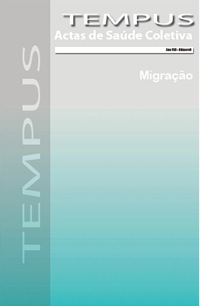Abstract
This is an integrative review, consisting of five stages, with historical background between 2008 and 2018, which sought to map scientific evidence about the use of Facebook by migrants and refugees as a device to express the migration process. The research used the Scopus and Taylor & Francis Online databases. A search strategy was established for each scientific base, based on a combination of controlled descriptors and free words. The terms used were validated based on the Health Sciences Descriptors (DeCS) and the American Psychological Association (APA). After applying the inclusion criteria, the sample consisted of 07 articles. Data analysis was performed through content analysis. The results showed that the use of Facebook is essential for the migration and refuge process before, during and after the displacement. It proved to be an indispensable device, along with the smartphone and internet connectivity. Even with difficulties inherent in the process, in general, migrants are able to maintain connections throughout the entire route and also after arriving in the destination country. The information from the networks is used as parameters for planning routes and making decisions, as well as maintaining family ties, preserving culture and building new networks that allow social inclusion in the context of the host country. In addition, they are instruments of denunciation, resistance and the struggle for human rights.

